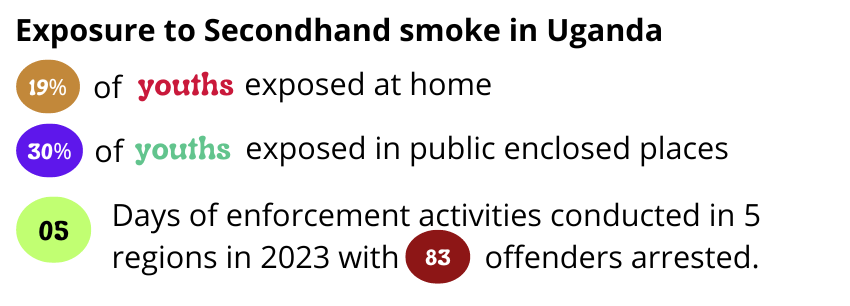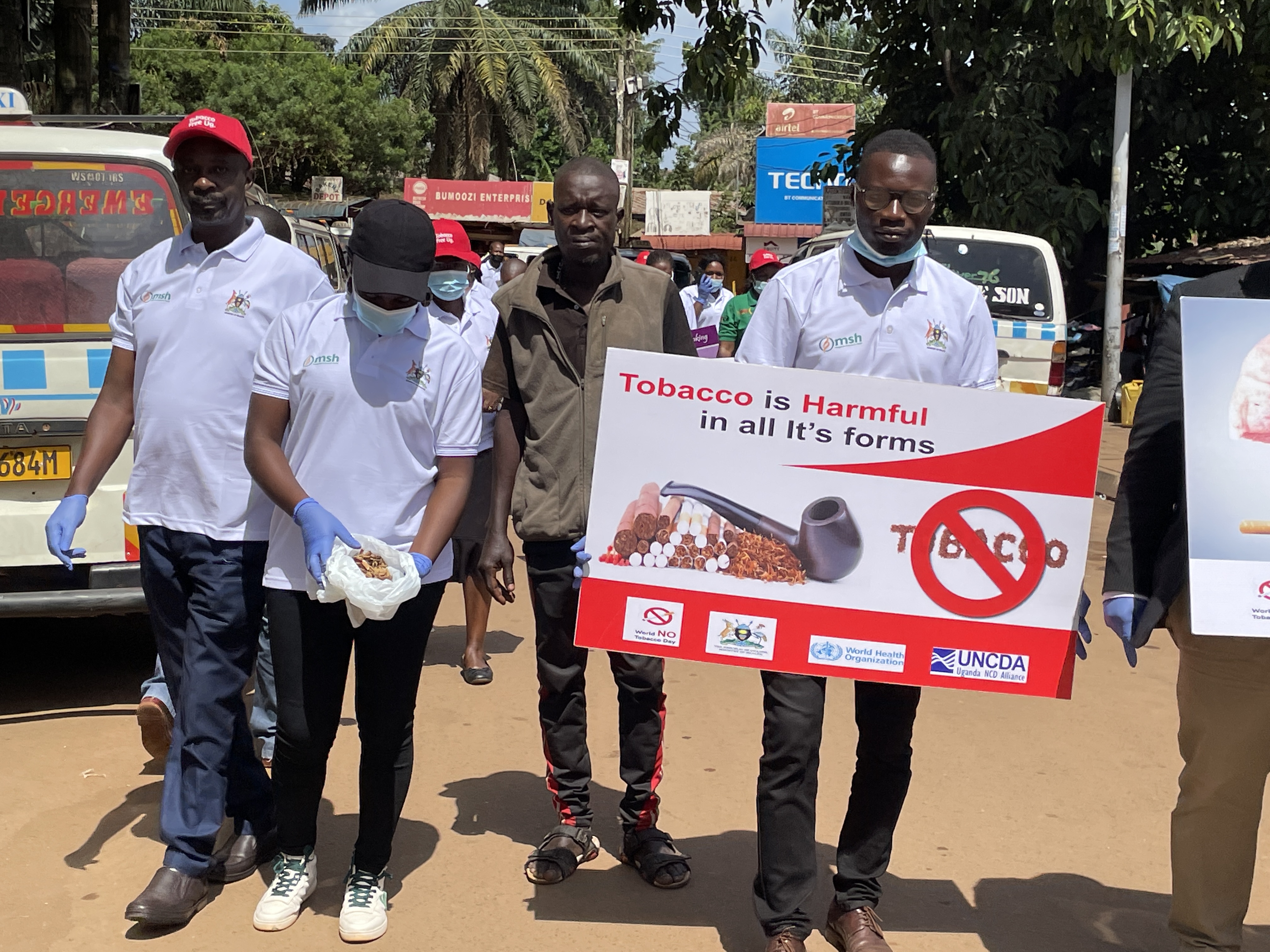Uganda steps up efforts to protect the public from secondhand tobacco smoke
 David Komaketch is a 37-year-old man who lives in Mbale, Uganda. A father of three, David was constantly exposed to tobacco smoke, which has put him at risk of cardiovascular and respiratory diseases. In 2016, he suffered respiratory distress, a frequent problem among second-hand smokers.
David Komaketch is a 37-year-old man who lives in Mbale, Uganda. A father of three, David was constantly exposed to tobacco smoke, which has put him at risk of cardiovascular and respiratory diseases. In 2016, he suffered respiratory distress, a frequent problem among second-hand smokers.
Although I have never been a smoker, I was in constant contact with tobacco smokers. Often, I was exposed to cigarette and shisha smoke on official trips with colleagues or when going out to restaurants or nightclubs. ‒ David Komaketch
Just like other secondhand smokers, continuous exposure to tobacco smoke proved life-threatening for Komaketch. "In 2016, I experienced respiratory difficulties, and, after an examination, the doctor found that my lungs were affected by smoking. He therefore recommended that I avoid all contact with tobacco products".
Exposure to secondhand smoke is a problem in Uganda, and young people are more affected with 19.7% of whom (over 1.7 million) are exposed to tobacco smoke at home, while 30% (2.7 million) are exposed in enclosed public places.
As part of Uganda's efforts to protect current and future generations from the harmful effects of tobacco, the country ratified the World Health Organization's Framework Convention on Tobacco Control (WHO FCTC) in June 2007 and subsequently passed the Tobacco Control Act in 2015. Article 12 of this law bans smoking in public places, workplaces, and means of public transport, protecting secondhand smokers like Komaketch from the health problems caused by tobacco smoke.
However, there are several challenges to implementing the smoke-free article, including the growing presence of new tobacco products, such as shisha.
"Tobacco is one of the main causes of cardiovascular disease, premature death, and disability worldwide, and shisha is a flavored tobacco product that is more dangerous than cigarettes. Smoking shisha for 40 minutes is equivalent to smoking 100 cigarettes. This is a health challenge that requires strong actions. ‒ Dr Yonas Tegegn Woldemariam, WHO Representative to Uganda
Between 2022 and 2023, WHO supported the Ministry of Health to train 157 law enforcement officers and 15 national trainers from five regions to equip enforcers with skills and knowledge and foster awareness raising of the ban on smoking in public places to ensure compliance. The training was followed by enforcement activities in the targeted Cities of Mbale, Jinja, Hoima, Masaka, and Kabale.
"In addition to the 2015 Tobacco Control Act, which bans smoking in public places, the law bans importation and consumption of shisha in the country," said Ms. Christine Ahimbisibwe, Program Officer, Mental Health Division at the Ministry of Health.
 With financial support from WHO and in collaboration with district health officials, police, and the media, the Ministry of Health conducted 5-day enforcement activities in 86 public places within the five targeted regions in December 2023. “We were able to destroy confiscated shisha pots and arrest 83 offenders,” Ms. Christine added.
With financial support from WHO and in collaboration with district health officials, police, and the media, the Ministry of Health conducted 5-day enforcement activities in 86 public places within the five targeted regions in December 2023. “We were able to destroy confiscated shisha pots and arrest 83 offenders,” Ms. Christine added.
The enforcement of the smoke-free law in the identified cities served as an awareness raising and a warning against smoking in public places across the country.
Since December 2023, David says he has seen an increased presence of anti-smoking signages across the city, including in hotels, restaurants, and nightclubs.
"My friends and colleagues have stopped smoking in front of me. I feel safer now. ‒ David Komaketch
"WHO will continue to support the government’s enforcement efforts to ensure full compliance with the tobacco control law and to protect the public from exposure to secondhand smoke. Another urgent action is to support the country move tobacco farmers to alternative crops,” Dr Hafisa Kasule, WHO technical officer for non-communicable diseases, concluded.
Communications Officer
WHO Uganda
Email: tcheutchouae [at] who.int (tcheutchouae[at]who[dot]int)
Communications Associate
WHO Uganda Country Office
Email: afwcougcom [at] who.int (afwcougcom[at]who[dot]int)
Phone: +256740487734
